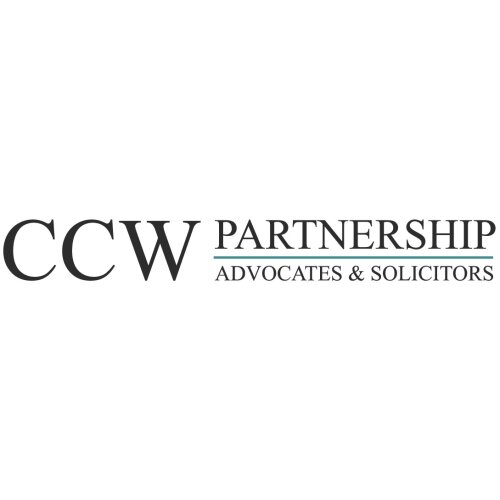Best Landlord & Tenant Lawyers in Bandar Seri Begawan
Share your needs with us, get contacted by law firms.
Free. Takes 2 min.
Free Guide to Hiring a Real Estate Lawyer
List of the best lawyers in Bandar Seri Begawan, Brunei
About Landlord & Tenant Law in Bandar Seri Begawan, Brunei
Landlord and tenant law in Bandar Seri Begawan, Brunei, governs the relationship between property owners and tenants. It covers various aspects such as leasing agreements, property rights, and resolution of disputes. The law seeks to ensure that both parties receive fair treatment and that their rights and responsibilities are clearly defined. Like many jurisdictions, rental agreements, property maintenance, and payment terms form the backbone of these laws, helping maintain a peaceful and equitable relationship between landlords and tenants.
Why You May Need a Lawyer
There are several common situations in the field of landlord and tenant relationships where individuals might require legal assistance:
- Drafting and reviewing lease agreements to ensure fairness and compliance with local laws.
- Handling disputes over rent payments, property conditions, and lease terminations.
- Eviction proceedings, where a landlord seeks to evict a tenant legally.
- Claims regarding maintenance and repairs that legally need to be addressed by the landlord.
- Interpreting and advising on compliance with local tenant laws and regulations.
Legal advice can help prevent potential conflicts, or resolve them efficiently, ensuring the rights of either party are protected.
Local Laws Overview
Several key aspects of local laws are particularly relevant in Bandar Seri Begawan:
- Rental Agreements: Typically outline the duration of the rental period, payment schedules, and responsibilities for maintenance and repairs.
- Eviction Process: Landlords must follow specific procedures which include proper notice and just cause.
- Security Deposits: Regulations regarding the collection, holding, and return of security deposits are in place to protect tenants.
- Property Maintenance: It is generally the landlord's responsibility to maintain essential services and keep the property habitable.
- Tenant Rights: Tenants have the right to a safe and habitable living environment and protection against unfair eviction.
Frequently Asked Questions
What should be included in a rental agreement?
A rental agreement should include details such as the rental amount, payment intervals, duration of tenancy, conditions for renewal and termination, and both parties’ responsibilities regarding maintenance.
How can a lease be terminated?
Termination of a lease must follow the terms specified in the rental agreement and any applicable local laws, often requiring notice from either party intending to end the lease.
What is the process if a landlord wants to evict a tenant?
A landlord must provide just cause and typically issue a written notice of the intent to evict. Legal procedures must be followed, including taking the case to court if necessary.
Are there specific laws governing rental increases?
Yes, there are regulations that govern when and how much a landlord can increase the rent, often tied to the terms of the existing lease agreement.
What can a tenant do if their landlord is not maintaining the property?
A tenant can formally notify the landlord to perform the necessary repairs, and if unmet, seek legal mediation or court intervention.
Is there a limit on how much can be requested for a security deposit?
Yes, local laws may impose limits on the amount that can be requested and stipulate conditions for its return.
Can a landlord enter the property without permission?
In most cases, landlords must provide reasonable notice before entering a tenant's property, barring emergencies.
Are tenants liable for damage to the property?
Tenants are generally responsible for damage caused by them or their guests, beyond normal wear and tear, as outlined in the lease agreement.
What happens if a lease term is violated?
This usually depends on the lease agreement's terms but can result in penalties, the requirement to remedy the situation, or lease termination.
Where can disputes between landlords and tenants be resolved?
Disputes can often be resolved through mediation or legal proceedings in the appropriate court.
Additional Resources
For those seeking assistance, the following resources can be helpful:
- The Ministry of Development, which offers guidelines on housing and tenancy matters.
- The Brunei Law Society, which can connect individuals with experienced legal practitioners.
- Community centers or local councils may offer mediation services for tenancy disputes.
Next Steps
If you need legal assistance in landlord and tenant matters, consider the following steps:
- Gather all relevant documentation including rental agreements, communication records, and any evidence related to the dispute.
- Consult with a lawyer specializing in landlord-tenant law to understand your options and rights.
- Contact local tenant advocacy groups for advice or support.
- Consider alternative dispute resolution methods such as mediation to potentially resolve issues without legal proceedings.
- File a formal complaint or legal action if deemed necessary by your legal counsel.
Lawzana helps you find the best lawyers and law firms in Bandar Seri Begawan through a curated and pre-screened list of qualified legal professionals. Our platform offers rankings and detailed profiles of attorneys and law firms, allowing you to compare based on practice areas, including Landlord & Tenant, experience, and client feedback.
Each profile includes a description of the firm's areas of practice, client reviews, team members and partners, year of establishment, spoken languages, office locations, contact information, social media presence, and any published articles or resources. Most firms on our platform speak English and are experienced in both local and international legal matters.
Get a quote from top-rated law firms in Bandar Seri Begawan, Brunei — quickly, securely, and without unnecessary hassle.
Disclaimer:
The information provided on this page is for general informational purposes only and does not constitute legal advice. While we strive to ensure the accuracy and relevance of the content, legal information may change over time, and interpretations of the law can vary. You should always consult with a qualified legal professional for advice specific to your situation.
We disclaim all liability for actions taken or not taken based on the content of this page. If you believe any information is incorrect or outdated, please contact us, and we will review and update it where appropriate.











